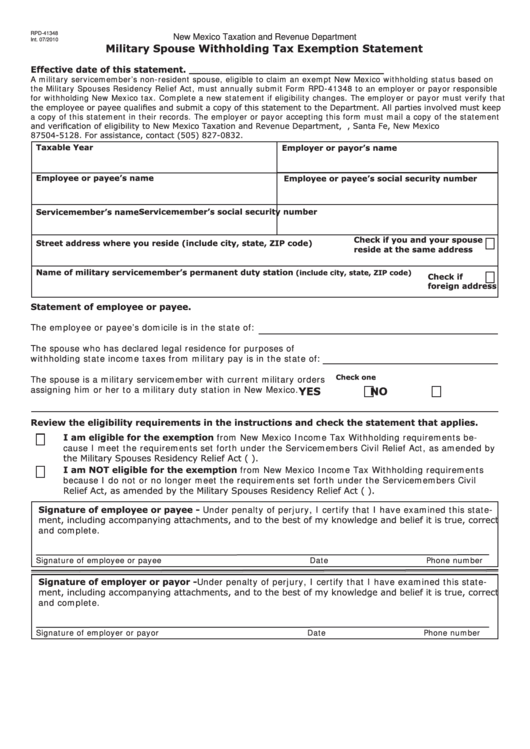Legal Ramifications Of Revoking Harvard's Tax Exemption: President's Statement

Table of Contents
The Legal Basis of Harvard's Tax-Exempt Status
Harvard University, like many other universities and charitable organizations, operates under the legal framework established by the Internal Revenue Code Section 501(c)(3). This section grants tax-exempt status to organizations deemed to be operating exclusively for religious, charitable, scientific, literary, or educational purposes. Maintaining this status requires strict adherence to various requirements, both at the federal and state levels.
To retain its tax-exempt status, Harvard must consistently demonstrate its commitment to its charitable purpose. This involves not only providing education but also engaging in research, public service, and other activities that benefit the broader community. The IRS scrutinizes several key aspects of a 501(c)(3) organization's operations, including:
- Internal Revenue Code Section 501(c)(3): This is the foundational legal text governing Harvard's tax-exempt status, outlining the specific criteria for qualification.
- State-level tax exemption regulations: Harvard must also comply with state-level tax regulations in Massachusetts, which may impose additional requirements.
- Charitable contributions and fundraising: A significant portion of Harvard's funding comes from charitable donations, which are tax-deductible due to its non-profit status. The university must maintain transparency and accountability in its fundraising practices.
- Compliance with IRS regulations: Regular audits and compliance with IRS guidelines are crucial for maintaining tax-exempt status. Failure to comply can lead to severe penalties, including revocation of the exemption.
Grounds for Revoking Tax-Exemption
The President's statement suggesting a potential revocation of Harvard's tax exemption likely stems from concerns surrounding specific aspects of the university's operations. While the exact reasons cited may vary, potential grounds for revocation under IRS regulations include:
- Private benefit violations: This could involve allegations of excessive executive compensation, preferential treatment of specific individuals or groups, or using university resources for private gain.
- Failure to serve public purpose: The IRS could argue that Harvard's activities do not sufficiently benefit the public good, contradicting its 501(c)(3) designation.
- Improper lobbying activities: Excessive lobbying activities beyond the permitted limits could be grounds for revoking tax-exempt status.
- Lack of transparency and accountability: Failure to maintain adequate financial records, transparency in its operations, and accountability to its stakeholders could also trigger an IRS investigation.
The IRS follows a specific process for revoking 501(c)(3) status. This typically involves an audit, investigation, and a formal determination issued by the agency. The organization then has the opportunity to appeal this decision through various legal channels.
Potential Consequences of Revoking Harvard's Tax Exemption
The revocation of Harvard's tax exemption would have profound consequences, impacting not only the university itself but also the broader landscape of higher education and philanthropy:
- Financial impact on Harvard: The loss of tax benefits would result in significantly increased tax liabilities, potentially affecting its endowment and operational budget.
- Effect on donations and philanthropic giving: The loss of tax-deductibility for donations would likely deter potential donors, leading to a reduction in charitable giving.
- Wider implications for other universities and nonprofits: The revocation could set a concerning precedent for other universities and nonprofits, potentially chilling philanthropic activity and raising concerns about the stability of the non-profit sector.
This could lead to several negative outcomes:
- Increased tuition fees: To compensate for reduced funding, Harvard might need to raise tuition fees significantly.
- Reduced funding for research and financial aid: Research initiatives and financial aid programs could face substantial cuts.
- Impact on endowment and investment strategies: Harvard's investment strategies would need to be reevaluated to account for increased tax burdens.
- Precedents for other institutions: The decision could influence how other similar institutions operate and fundraise, creating uncertainty in the sector.
Legal Challenges and Court Cases
Any attempt to revoke Harvard's tax exemption would almost certainly face significant legal challenges. Harvard would likely utilize various legal arguments in its defense:
- Due process rights: Harvard would argue for its right to due process and a fair hearing before any revocation decision.
- First Amendment implications: Arguments related to academic freedom and the First Amendment might be raised.
- Judicial review of IRS decisions: Harvard would likely seek judicial review of the IRS's decision in federal court.
The Broader Implications for Higher Education Funding
The potential revocation of Harvard's tax exemption has significant implications beyond the university itself. It could:
-
Chill philanthropy: Uncertainty surrounding tax-exempt status could discourage charitable giving to universities and other nonprofits.
-
Reduce access to higher education: Increased tuition fees and reduced financial aid could make higher education less accessible to low-income students.
-
Shift funding models: The situation might accelerate the exploration of alternative funding models for higher education, possibly including increased government funding or alternative philanthropic structures.
-
Impact on future charitable giving: The implications could extend to overall public confidence in the nonprofit sector, leading to a decrease in charitable contributions.
-
Access to higher education for low-income students: Reduced funding for financial aid could significantly impact access to higher education for students from disadvantaged backgrounds.
-
Potential for increased government funding: The crisis could lead to a debate about increased government funding for higher education.
Conclusion
The potential revocation of Harvard's tax exemption presents significant legal challenges and far-reaching implications for higher education and the nonprofit sector. Understanding the legal basis of tax exemption, the grounds for revocation, and the potential consequences is crucial for informed discussion. The President's statement, while controversial, highlights the ongoing debate surrounding the role and responsibilities of universities in society and the complexities of maintaining tax-exempt status. Further research and analysis of Harvard's tax exemption and similar cases are essential to ensuring a fair and transparent system for all non-profit organizations. Learn more about the intricacies of Harvard's tax exemption by exploring relevant legal documents and expert opinions.

Featured Posts
-
 Blake Lively Vs Anna Kendrick Timeline Of A Hollywood Rift
May 05, 2025
Blake Lively Vs Anna Kendrick Timeline Of A Hollywood Rift
May 05, 2025 -
 Did Dustin Poirier Make A Mistake Retiring Paddy Pimblett Weighs In
May 05, 2025
Did Dustin Poirier Make A Mistake Retiring Paddy Pimblett Weighs In
May 05, 2025 -
 Jonathan Davino And Sydney Sweeney A Look At Their Recent Public Appearance
May 05, 2025
Jonathan Davino And Sydney Sweeney A Look At Their Recent Public Appearance
May 05, 2025 -
 Verstappen And Piquets Daughter Lily The Latest News From The Racing World
May 05, 2025
Verstappen And Piquets Daughter Lily The Latest News From The Racing World
May 05, 2025 -
 Saturdays Partial Solar Eclipse In New York City What Time And How To Watch
May 05, 2025
Saturdays Partial Solar Eclipse In New York City What Time And How To Watch
May 05, 2025
